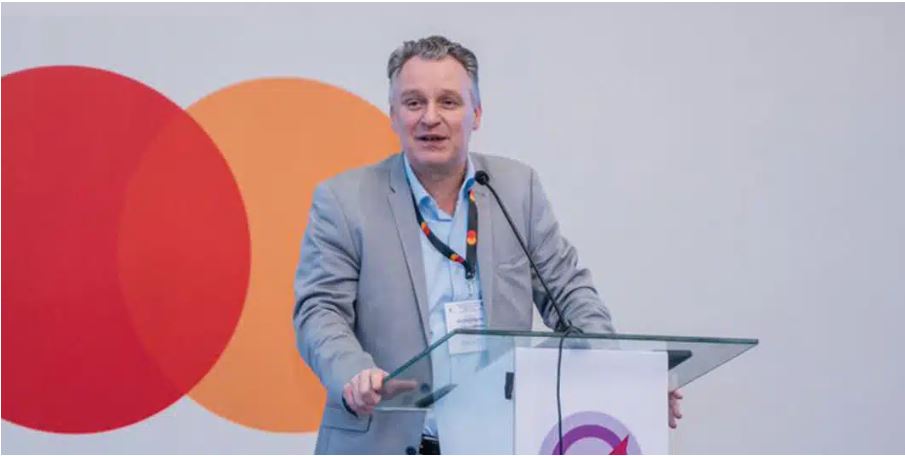Despite the challenges presented by security concerns, Safaricom
Telecommunications Ethiopia has plans to triple its telecom tower network over
the next three years. The company wants to invest more than USD 1.5 billion to
extend its coverage throughout the nation.
According to Wim Vanhelleputte, CEO of Safaricom Ethiopia, the business
presently runs a network of 2,500 towers, 1,000 of which it leases from the
state-owned Ethio telecom.
The private telecom provider offers coverage on highways, in Addis Ababa,
and in 26 other cities. Vanhelleputte, the CEO, says that this is not even
close to the goal, having been appointed in July.
The CEO told The Reporter, Ethiopia based newspaper, “The country is
very big; we aren’t even half way, and we need up to 7000 towers to really
cover the entire population.”
Safaricom Duty exemptions
on equipment imports have helped Ethiopia achieve its expansion ambitions, many
of which are included in the conditions it accepted when it won the competition
for the nation's first commercial telecom operator's license in 2021. But the
CEO points out that one significant obstacle is Ethiopia's security problems.
"While we would like
the entire nation to be open, there are currently areas of the nation where we
are unable to offer data services due to unresolved security issues,"
Vanhelleputte stated. "I sincerely hope that the entire country opens up
in the next two or three years."
The CEO of Safaricom
Ethiopia observes the security concerns will make it difficult to achieve the
targets set out in the country’s 10-year digitization plan, while limited
access to smartphones and limitations in regulation and policymaking also pose
challenges.
The effectiveness of
Safaricom’s network coverage expansion efforts hinges on public access to
smartphones, which Vanhelleputte and his team worry is too low. Safaricom
Ethiopia estimates 25 million, or one in five Ethiopians owns a smartphone. It
is a figure that the CEO wants to see rise by three or four folds.
The figure also contrasts
with data from Ethio telecom, which estimates there are less than 15 million
smartphones active in the country.
Vanhelleputte is aware of
the challenges associated with increasing smartphone ownership, though.
"A decent smartphone
can cost up to one or two hundred dollars. Access to foreign currency is
necessary for the import of cellphones, which presents another significant
obstacle, he stated.
Safaricom Ethiopia sees
this as a chance to support local mobile phone assembly companies that can
manufacture reasonably priced handsets that would attract customers and give
them access to the digital initiatives being carried out nationwide as part of
the ten-year plan.
In addition, the business
is starting a device financing program in association with banks and vendors.
Within the following year, a plan to let customers pay for smartphones on a
monthly basis is anticipated to be introduced. Safaricom Ethiopia is in talks
with smartphone assemblers and banks to take its smartphone accessibility
strategy to the next level, according to the CEO.
“We’re trying to get the
right balance of making it affordable for a monthly fee payout to the customer
and also attractive for the customers to want to get the smartphones,” he said.
Safaricom Ethiopia is
obliged to cover a quarter of the Ethiopian population by 2025, but the lax
enforcement of regulation in the state dominated industry has posed issues.
“We don’t believe that
government institutions should promote monopoly. On the contrary, they should
promote open access to as many players as possible,” Vanhelleputte told The
Reporter.
He observes the necessary
policies are set forth in regulations put forth by the National Bank of
Ethiopia (NBE) and the Communications Authority (ECA) but need to be properly
enforced.
“Collectively what we
want is the regulators on the fintech and on the telecom side to enforce the
policy,” Vanhelleputte said. ”Send out a strong message for all the private
players that everybody is getting equal access to offer services and then let
the best or cheapest service win. The customer will decide who the best is.”
Last week, the ECA
enacted a 25.8 percent reduction on mobile termination rates (MTR) for the next
five years, bringing the cost down from Birr 0.31 to Birr 0.23 per minute for
calls between Ethio telecom and Safaricom Ethiopia networks. The move emanates
from a 2022 interconnection agreement between the two moderated by the
regulator. It will be effective on May 1, 2024, and apply until April 2025.
“It is a wonderful
development,” Vanhelleputte told The Reporter. “The cut down rate means more
interaction between the customers of the two companies, meaning growth for both
of us.”










0 Comments